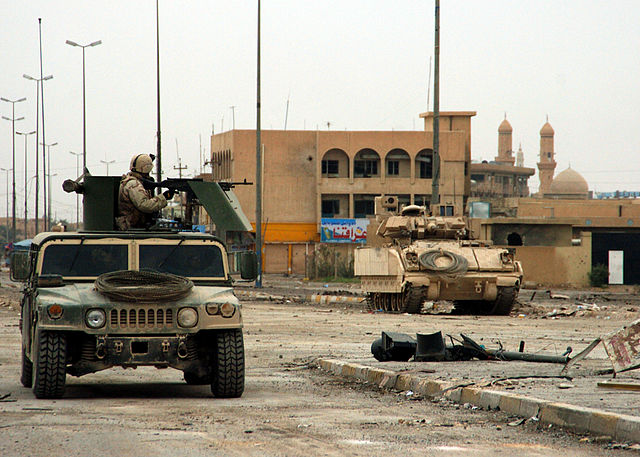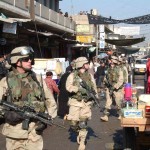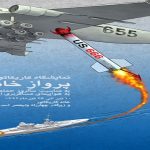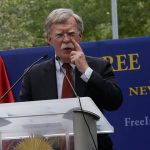by Jim Lobe
Unsurprisingly, the same people who loudly championed the 2003 invasion of Iraq are clearly at it again, although this time they want not only to see US troops fighting in Iraq, but also in Syria.
Even while they insist that they don’t want a “new American ground war” in the region, hard-line neoconservatives, led by “scholars” at the American Enterprise Institute (AEI), are urging a commitment of “thousands” of “advisers and trainers” and Special Forces deployed to both countries to roll back and defeat ISIS, which calls itself the Islamic State.
Writing in the London Telegraph over the weekend, AEI’s Fred Kagan made his recipe for victory quite clear.
Defeating the Islamic State…will certainly require a dramatic expansion of air strikes throughout Iraq and Syria.
It will also require the deployment of thousands of American forces – primarily Special Forces – to engage directly with moderate Sunnis in both countries and train the Iraqi Security Forces (ISF) and the Syrian moderate opposition.
Effective trainers must fight alongside those they are training in order to sustain their respect and trust. Americans must work directly with local tribes to help them survive against the lethal threat that the Islamic State poses.
Similarly, AEI’s vice president for foreign and defense policy studies, Danielle Pletka, teamed up with Gen. Jack Keane (ret.)—widely regarded along with Kagan as a key architect of the fabled 2006-7 “Surge” in Iraq—to outline what they called a “comprehensive strategy” against ISIS (that also, curiously, targeted Qatar—more on that later) in Monday’s Wall Street Journal.
U.S. military support will be key: the U.S. Central Command has a list of ISIS targets in Syria and Iraq…. Advisers and trainers are also needed by the thousands, not hundreds, to assist the Peshmerga, reconstitute the Iraqi army, and assist Sunni tribes now opposing ISIS who must join this fight. Close air support will also be vital.
Baghdadi and his senior leaders aren’t invulnerable, and U.S. special operations forces should be given the mission to target, kill and capture ISIS leaders. We targeted senior terrorist leaders once in Iraq and still do in Afghanistan and elsewhere. ISIS should be no different, particularly after its brutal murder of [James] Foley.
How many “thousands” are they talking about? Well, they don’t say, but a close collaborator organization, the Foreign Policy Initiative (FPI)—successor to the Project for the New American Century (PNAC)—put out a policy paper Monday that cited the recommendations of another big Iraq War booster, Max Boot, who, in an op-ed published by The Spectator last week called for a “western advisory and special operations presence in Iraq [alone] to somewhere in the neighbourhood of 10,000 to 15,000 personnel.”
Advisers should be evenly distributed between the Kurdish peshmerga, the Sunni tribes and some of the more capable units of the Iraqi security forces in order to make clear that we are not playing favourites among Iraq’s sectarian groups. Simply having western advisers present alongside anti-Isis fighters will greatly enhance their morale, professionalism and effectiveness. [Of course, that’s only Iraq; Boot doesn’t address the need for ground troops, advisers, or trainers in Syria].
In other words, almost exactly four years after the last US combat brigade left Iraq, these analysts are calling for US ground forces to play a key combat role alongside whatever presumably friendly forces can be mustered to fight ISIS in Iraq, if not Syria. Without US troops fighting by their side, the implication goes, our putative allies will simply fold, even if US warplanes and drones are striking the enemy from above.
We are supposed to be reassured that the objective of deploying so many US ground forces in both countries is limited, presumably to ISIS’s military defeat. “…[T]his is not a plan for a new American ground war in Iraq seeking to reconstitute a failed state,” argue Pletka and Keane. “It is a mission to help Iraqis and Syrians on the ground help themselves.” To which one must ask, what does that mean?
After all, the aim of the Surge, which has long been extolled as a great success by these same commentators (who have never been shy about taking credit for it), was not just to isolate and defeat ISIS’s predecessor, Al Qaeda in Iraq (AQI). Its strategic objective was to achieve national reconciliation precisely to preserve and rebuild the Iraqi state. It seems now that the neocons are implicitly conceding that the Surge, despite its tactical success, was a strategic failure.
Does Pletka and Keane’s reference to Iraq as a “failed state” mean the neocons are giving up on the unity and territorial integrity of Iraq (especially now that Netanyahu has endorsed Kurdish independence) or Syria? Under their plan, the objective seems limited to defeating ISIS by arming and fighting with whatever buyable or “moderate” groups are willing to join the effort. But what happens when those groups’ broader strategic aims are found to be mutually incompatible? (It bears recalling that the Kurds took advantage of ISIS’s rout of the Iraqi army in the north to send the peshmerga forces into Kirkuk.) Then again, the neocons have never excelled at providing persuasive answers to Gen. David Petraeus’s legendary challenge during the first days of the Iraq invasion: “Tell me how this ends.”
But neocons don’t like people to ponder such questions. Instead, they count on their ability to reduce extremely complicated and difficult situations to urgent, black-and-white choices that appeal more to fear than to reason. “Much will depend on the effectiveness of the combined ground force backed by consistent air power,” write Pletka and Keane in presenting their “comprehensive plan” in which the military component is predictably dominant. “[F]ailure means the destabilization of the Middle East, terrible bloodshed and, ultimately, the murder of more Americans.” Or, as stated even more apocalyptically by FPI and PNAC founder Bill Kristol in his Weekly Standard editorial, “Perhaps the choice is between a new American century or a newly barbaric century.”
Of course, while Obama is clearly pondering further military action against ISIS, including possible air strikes in Syria, the notion of sending 10,000-15,000 US troops to Iraq and Syria appears far-fetched at this point, and it seems clear that the administration is very much aware of the dangers of the kind of “slippery slope” that the neocons are now pushing Washington to plunge down.
Even Richard Haass, the generally hawkish president of the Council on Foreign Relations who acts as a reliable weathervane for elite Republican opinion, describes the introduction of US ground forces as “a political non-starter [that] …is not going to happen,” suggesting instead that the US work with Syrian President Bashar al-Assad in fighting ISIS—an anathema to the neocons. And, while we may soon hear echoes of the neocon agenda from prominent hawks like Sens. McCain and Graham when Congress returns to Washington after the Labor Day recess, it seems very likely that, when push comes to shove, the notion of putting thousands of US “boots on the ground” is not going to prove very popular on Capitol Hill.
But the neocons are nothing if not dogged.






Never forget that what they really want is war with Iran.
They wouldn’t care about Syria if it were not their path to war with Iran. They were fine with Assad and Syria just as they were for decades, even doing our torture on renditions, and sending their troops to fight alongside us in the Persian Gulf War.
This is all about the much bigger, longer war they want.
ISIS = Israeli Secret Intelligence Services. This is the reason this group doesn’t threaten and/or attack Israel.
More bad advice from Fred Kagan. I continue to think the “surge” in Iraq was an American blunder because the US should have made deals with Iran and Syria in 2006-07. As recommended b the Iraq Study Group.